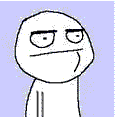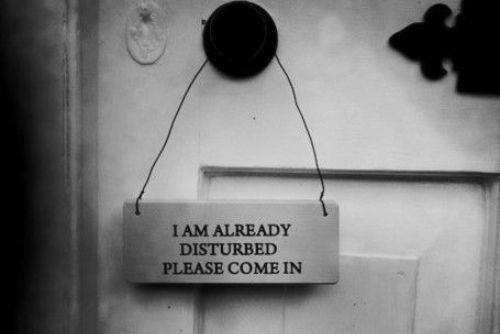Sunday, October 23, 2011
Ako ang pagbabago, kayo ang boss ko: All the King's Men (1949)
He who wants change, was changed. Willie Stark, the man who is perceived as a nobody. A noble man with a noble cause. The very man that could eradicate the corruption in the political system. He is the man, your man, my man., Willie Stark, remember the name. At the start of the movie, it is very obvious that a man who is naive from politics is an easy prey for the "veterans" of the game. He is an easy catch that can be manipulated in many ways. He was a gopher for the real politicians by being the easy bait of losing the elections. However, on that faithful speech, he found his inner and former self, being the sentimental man who wants to fight the system and be the change everybody wants. Being a hick, for the hick. He is a fiery populist by nature, vindicating his speeches with spurs of emotions that caught up the crowd. It became very easy for him to become popular and gain the political experience he needs. He, however lost the political game, thus he vowed to win because "he now knows how to win". Come next election, long time friend Jack Burden noticed how he became a politician, a dirty one for that matter.
Being the politician he really is, Stark used various ways of politicking in order to win. Using a lot of connections to collect money, buying people's votes, ensuring everybody their own share of promises and a lot more. Traditional politics at its finest, mastered by now Governor Willie Stark in just 1 term. Astonishing as it is, this is reality. In order to win, one must play the game. Morals have no ground in this debate, the end result is just either you win or lose. Whether Stark is bad or good or playing a fool of himself is part of the game. Exhausting all possible and plausible means, even if it is bad in the eyes of what is the norm. Every move is a strategy, every step counts as a possibility. At the end of the day, all we want is to win the game. Winning should not be lenient only to those who played good and angelic, simply because they did good in their campaign. Winning is everything, even if it would cause havoc for others. Winning is not about a test of morals, it is a test of wits and emotional stability, handling the pressure at its highest level. Winning is that precious, only the strong demands it.
The system or the person, who is wrong? Some would argue that the political system is wrong, simply because it affects the thinking of the people who joined it. They want to win so badly they resort to things such as cheating or using laundry money. Others would argue that it is the person who is wrong, for he/she did not use his/her will to stop what is wrong. If a person knew it was wrong, why should he/she would continue to be involved with it? For me, I would say that nothing is wrong, and that the political environment we have is perfect. The imperfections that can be observed in the political arena makes it imperfectly perfect. The decisions that is made by individual actors, the outside forces that compels and distorts what is happening, and others. This things contribute to the imperfectness of the political system.
Politicians would always play a different ball game that a normal constituent would never appreciate. As a student of politics, I learned that to succeed, others must fail.
Ale pabili nga po, isang kahong kaligayahan: Citizen Kane
Citizen Kane. A movie about power, what power can do to a person and how it shifts the balance in the society. Power. Ano nga ba ang meron sa power at ito ang pinagkakaguluhan ng mga tao? Bakit nga ba ang tao e ginagawa ang lahat to attain power? Power to control everything, anything. Pag may power ka lahat ng bagay kaya mo gawin, lahat ng gusto mo possible. This is predominantly portrayed in Citizen Kane as Kane, being one badass rich kid, can do whatever he wishes to do. To irritate people, to take away anything from other people, to literally and figuratively lord over others. Power is something seen as a commodity that can be used in order to suppress everybody. Power can drive any man into the top of the hierarchy.
Charles Foster Kane. A man destined to become the most powerful person in the human race. A man whose name speaks volumes of greatness. A man who is attached to every vital political thing in the earth: Land, Media (newspaper), Politics, Charisma. Such a great man that can change the life of a thousand within the snap of his fingers. His power subsides, and coincides with the fact that he "controlled" the minds of the people through yellow journalism. He manipulates the crowd without them knowing it. He managed to become the hero in the eyes of those who became blind by his persuasion. Power (controlling majority of the newspaper reading population) + Power (persuasion, sheer intelligence, great risk taker) = Power that can overcome anything, everything. Something that everyone of us wants, a power that is limitless and endless.
However, mother nature is cruel enough to provide the irony in every living thing. For the case of the great Mr. Kane, it is the lack of love he did not received and felt, his Rosebud. This spot of weakness is one thing that power nor money and fame could overcome. The lack of emotional attachment from someone very important shadowed his great life until his eventual death. The deprivation of his childhood is a burden too much for him to carry that until his deathbed it is the thing he regrets the most, that he wants the most. This deprivation caused his frustration during the first parts of the movie. The angst, the stubbornness, the evil intentions. All of this boils down to the backlash he suffered by the lack of love he received in his childhood.
To be great and powerful, one must sacrifice his/her emotional attachment to everybody. To be loved and to love back, one must be weak and futile to those who are powerful. How pitiful a human life can be.
Preview: Pulitika mula sa aking mata
Una sa lahat, ako nga pala si Tommy Deogracias Castillo II. ID No. 109, nasa kursong Political Science. Hindi masyadong mahilig sa movies, hindi ako lumaking babad sa movies, hindi ko alam kung anong meron sa movies. Hirap ako makipag relate sa mga taong nakakapanood ng movies dahil wala akong insight sa mga sinasabi nila. Hindi ako makarelate. Ewan ko kung bakit, pero mas gusto ng mga mata ko na manood ng anime, cartoons. Mga bagay na detached sa totoong buhay, mga bagay na hindi pwede sa realidad. Mga bagay na nagpapagana ng imagination nga tao, mga bagay na hindi predictable. Pero dahil nasa subject ako na ito, kelangan kong mahalin ang movies. <3
Ang blog na ito ay para sa subject na CINEPOL (Cinema and Politics), section A-51, 2nd term, Academic Year 2011-2012 ng De La Salle University.
Ang purpose ng blog na ito ay para makumpleto ang isa sa mga pinakaimportanteng requirements sa subject na CINEPOL, ang maintindihan pa lalo ang Politics sa gamit ng mga pelikula bilang isang medium.
Bakit Pulitika mula sa aking mata: Dahil nga movies ang aming ginagawang medium para maintindihan pa lalo ang Politics, magkakaroon ng iba't ibang variations at points of contentions ang mga tao. Iba't ibang perspective at iba't ibang approach na ginagamit per movie. At dahil hindi traditional na pagtuturo-pagtuto ang nangyayari sa class, mas mainam na sabihin kong ang mga mapo-post ko dito sa blog ay mga bagay na naaayon sa perspective ko. Maaring mali, maaring tama, maaring kakaiba. Ito ang pulitika mula sa aking mata.
Medium na gagamitin: Aaminin ko mahina ako mag English, at di ganun kalalim ang Filipino ko. Naisip ko din na siguro mas maganda kung street language o salitang balbal ang gamitin ko. Taglish, Englog, Conyo, etc. Salitang pinakasanay ang isang normal na Filipino. Salitang naiintindihan ng isang normal na Filipino. Salitang ginagamit pang araw araw ng isang normal na Filipino. But of course for the bulk of the blogs that I will publish, I will use the medium most appropriate. Salamat sa pagbabasa.
Veni, vidi, vici.
Ang blog na ito ay para sa subject na CINEPOL (Cinema and Politics), section A-51, 2nd term, Academic Year 2011-2012 ng De La Salle University.
Ang purpose ng blog na ito ay para makumpleto ang isa sa mga pinakaimportanteng requirements sa subject na CINEPOL, ang maintindihan pa lalo ang Politics sa gamit ng mga pelikula bilang isang medium.
Bakit Pulitika mula sa aking mata: Dahil nga movies ang aming ginagawang medium para maintindihan pa lalo ang Politics, magkakaroon ng iba't ibang variations at points of contentions ang mga tao. Iba't ibang perspective at iba't ibang approach na ginagamit per movie. At dahil hindi traditional na pagtuturo-pagtuto ang nangyayari sa class, mas mainam na sabihin kong ang mga mapo-post ko dito sa blog ay mga bagay na naaayon sa perspective ko. Maaring mali, maaring tama, maaring kakaiba. Ito ang pulitika mula sa aking mata.
Medium na gagamitin: Aaminin ko mahina ako mag English, at di ganun kalalim ang Filipino ko. Naisip ko din na siguro mas maganda kung street language o salitang balbal ang gamitin ko. Taglish, Englog, Conyo, etc. Salitang pinakasanay ang isang normal na Filipino. Salitang naiintindihan ng isang normal na Filipino. Salitang ginagamit pang araw araw ng isang normal na Filipino. But of course for the bulk of the blogs that I will publish, I will use the medium most appropriate. Salamat sa pagbabasa.
Veni, vidi, vici.
Subscribe to:
Comments (Atom)






